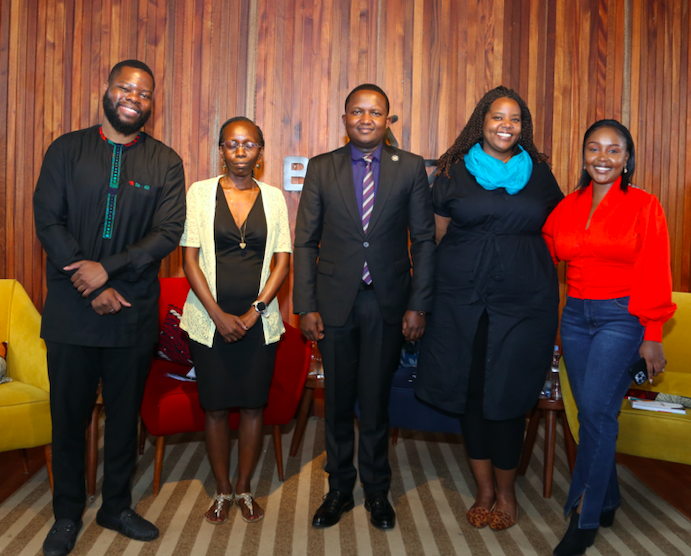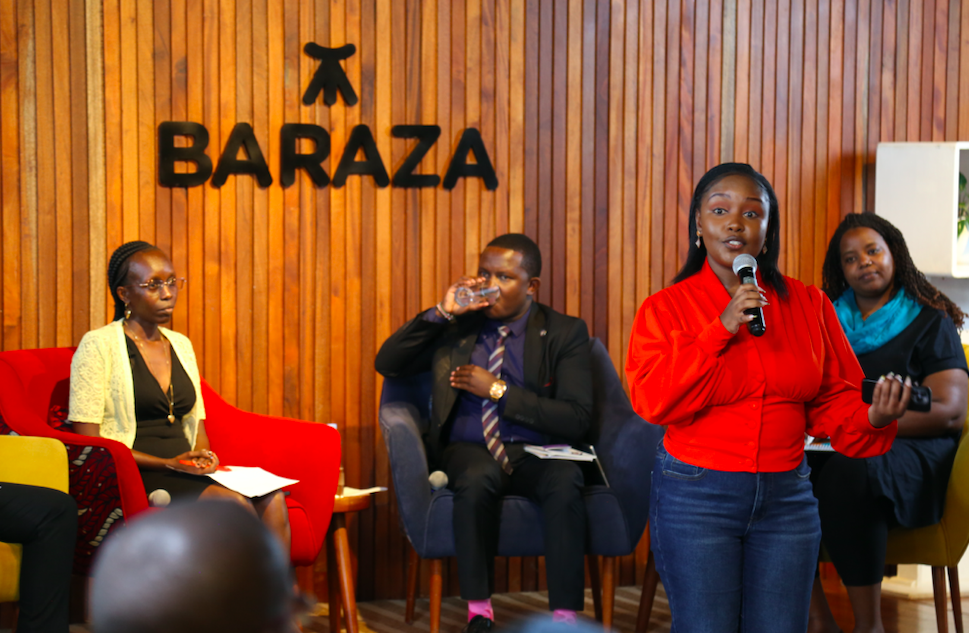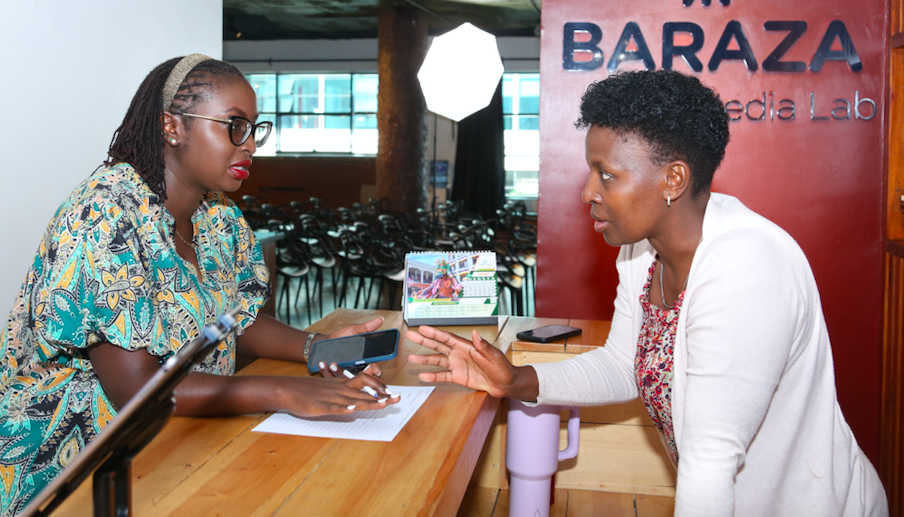

As Africa’s media landscape undergoes rapid transformation, Artificial Intelligence (AI) is emerging as both a powerful tool and a disruptive force.
To examine its impact, the Africa Media Festival, in collaboration with Baraza Media Lab, convened a high-level media roundtable titled “Innovation: AI for Sustainable Media Futures.”
The discussion brought together thought leaders, journalists, regulators, and AI experts to explore how AI could be harnessed responsibly to drive sustainability in African media.
The forum provided a platform for stakeholders to share insights, showcase best practices, and collaborate on AI-driven solutions.
Discussions centered on AI’s potential to enhance journalism, optimize content creation, and streamline media operations while maintaining ethical standards and regulatory compliance.
According to recent studies, over 50 per cent of global media organizations have adopted AI tools for content generation, curation, and distribution.
In Africa, the uptake has been slower due to limited access to technology, inadequate training, and regulatory concerns.
However, several media houses have begun integrating AI for newsroom automation, audience analytics, and fact-checking.
Baraza Media Lab hosted this roundtable to examine the disruptions AI is causing in the media sector.
AI’s role in journalism was acknowledged as inevitable, yet participants emphasized the need for caution to safeguard journalistic integrity.

Industry leaders weigh In
Maurice Otieno – Executive Director, Baraza Media Lab emphasized, “AI is too perfect—where do we draw the line? As African journalists, we cannot remain passive; we must actively participate in shaping AI’s role.
Reuters research shows that 50 per cent of global media organizations use AI tools. We must protect creative and editorial autonomy while adopting AI responsibly through better regulation and training.”
Mukui Mbindyo – Head of Partnerships, Africa Digital Media Group noted, “Creativity and human intuition remain crucial, even in an AI-driven media world. Africa lags in AI adoption due to limited exposure, making us consumers rather than creators. Addressing this gap is essential to remain competitive.”
Karanja Jackson – Regional Coordinator, Media Council of Kenya stressed, “AI is not replacing journalists; rather, those who understand AI will replace those who do not. The Media Council of Kenya is actively training journalists to combat misinformation and developing ethical AI guidelines.”
He called for regulatory measures to ensure AI-generated content maintains accuracy and accountability.
Dr Keziah Wangui Githinji – Lecturer, Broadcast Multimedia Journalism, USIU shared insights from the academic sector, stating, “Education must adapt to AI’s rise, especially in multimedia journalism. It has become easier to detect AI-generated content, but the key question remains: how do we work smartly with AI rather than fear it?”

Balancing AI Innovation and Ethical Journalism
With AI adoption rising globally, Africa must invest in digital literacy and AI training to ensure media remains innovative and competitive.
The roundtable set the stage for deeper industry collaboration, policy recommendations, and strategic AI integration in media houses.
AI’s success hinges on its ethical application and practical use within journalism.
While automation enhances efficiency, participants stressed that AI should complement rather than replace human creativity, fact-checking, and editorial oversight.
The roundtable discussion at Baraza Media Lab offices also served as a prelude to the upcoming Africa Media Festival, scheduled for the 26th and 27th of February at the National Museums of Kenya.








![[PHOTOS] Kalonzo in court for Waititu's bail hearing](/_next/image?url=https%3A%2F%2Fcdn.radioafrica.digital%2Fimage%2F2025%2F03%2F0c05859c-039e-491e-b3b8-ec3119684729.jpg&w=3840&q=75)




